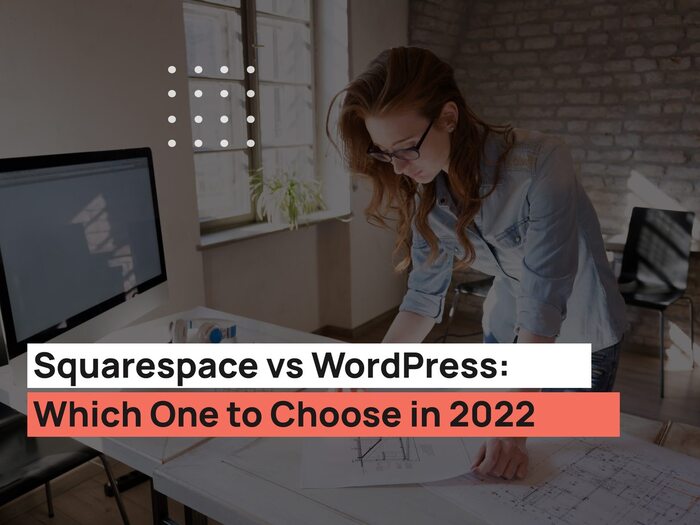Before we start peeling off some layers, we should talk about first things first: what is content management and what are Electronic Content Management Systems?
Website building entails a series of processes that need some form of administration. That is what digital content management is – a way of creation, modification and structure of your content. Content Management Systems (CMS) made the work of a lot of bloggers, web-designers and small business owners effortless.
Building a website with a CMS seems to be the logical way to do it. You have maybe considered using WordPress, Joomla, Drupal, etc., but got confused somewhere along the way. They all have similar features and can be a little different at the same time. We understand that this can slow down your decision process or confuse you.
We decided to look more in-depth at two open-source CMS. We picked the most popular one – WordPress and a less popular one – Drupal. Both require custom domain purchases and installation on WordPress hosting or Drupal hosting servers.
Drupal has a market share that’s around 4%, and WordPress- over 33% of all the websites online. These numbers make WordPress websites one of the most read content in the digital world. But that does not necessarily imply that WordPress fits your specific needs.
Drupal and WordPress offer quite a unique approach and a diverse range of options for their users. Before we get into it, let’s look at some numbers:
Is it easy to use? Tell us what your target is
WordPress vs Drupal has at all times been a subject of debate. What we think the most important thing to consider when you compare the two, is defining your goal.
WordPress’s strong point is user-friendliness. It has an easy interface, and it’s a breeze to install any add-on for it. There are myriads of intuitive visual builders available. You can install a plug-in and start building and customizing your website. This makes any aspiring blogger or website owner fall in love with this CMS.
Drupal requires a sophisticated data structure and does wanders with content-heavy websites. These traits make it suitable for more experienced users and web-developers. This system is ideal for sites with high user numbers and online stores.
A Drupal vs Joomla user-friendliness comparison would show that they are similar and both fall behind WordPress.
Experience is the best teacher
The first CMS released was Drupal. It dates back to 2000. Being an open-source project, Drupal had more time to get to where it is now. Drupal is flexible and can deliver complex websites with higher functionality and effectiveness. All these features are due to their contributors during all these years of activity.
In 2003 developers released WordPress as an open-source CMS as well. It has the most significant number of contributors and the largest online community. It took an average of 112 years to work on writing all the code lines for this platform. Yearly, millions across the world meet up for WordCamps to share know-how and improve this platform.
Security Rankings
Content management companies work on all aspects of website management, and security is fundamental. A WordPress vs Joomla vs Drupal comparison would show that Joomla has the best security rankings. Drupal is the close second, and WordPress is believed to be the least secure one.
WordPress is less secure not because of its core, but because of the third-party add-ons and plug-ins. This openness is a bittersweet issue because WordPress plug-ins extend the functionality of its core. Users of any background can work on their sites and make changes to it as they please. At the same time, each time someone uploads a plug-in, the platform becomes more and more vulnerable to hacking.
Developers designed Drupal to be less dependent on third parties. This system allows customization in its central theme. Since there is less third party involvement, this platform is less susceptible to malware.
Which one is the least expensive?
Money talk is a sensitive subject. When we look at Drupal vs WordPress initial costs – they are both 100% free to download. They are both easy to install too. To make an educated decision about which one is going to cost less first, you need to assess your project. Consider its flexibility and its need for change along the road.
As a rule, WordPress developers are more affordable than Drupal developers. Drupal may be a cheaper option for you if you assess your project right. If you know your needs for functionality are going to change a lot – pick Drupal.
Why is WordPress cheaper? If you’re tech-savvy and willing to learn, there are a lot of things you can do by yourself. A lot of times, you don’t need to hire a developer. Consider using available online resources to work on your project. If you think you bit more than you can chew, there are companies you can hire to help you out.
Design and Functionality
It’s easy to go from liking Drupal to WordPress and vice versa. We think Drupal is adaptable. Many modules that Drupal has, add functionality and makes any feature changeable to your liking. We believe the learning curve can make it hard for users to decide in its favor.
Themes, templates and plug-ins are the basis of WordPress content management. There is no stopping you in designing your website as you want. There are thousands of third parties who provide this growing market with high quality, industry-specific themes which no other CMS on the market has.
In 2020, as in 2019, the number of websites built on WordPress is expected to rise. We believe this is an essential factor for progress. We expect a continuous expansion of available resources. There will be an increase in the overall awareness about the platform. This progress is only going to raise the number of active contributors and make this platform grow.
In conclusion, we’ll have to say the good old “it depends” when it comes to choosing a CMS for your website. It depends on the complexity of your project, its flexibility, and the money you want to spend. The amount of time you want to spend studying these sophisticated platforms is also essential. Make sure you have all the information you need before making a decision. Feel free to use our website as a reliable source of information!



